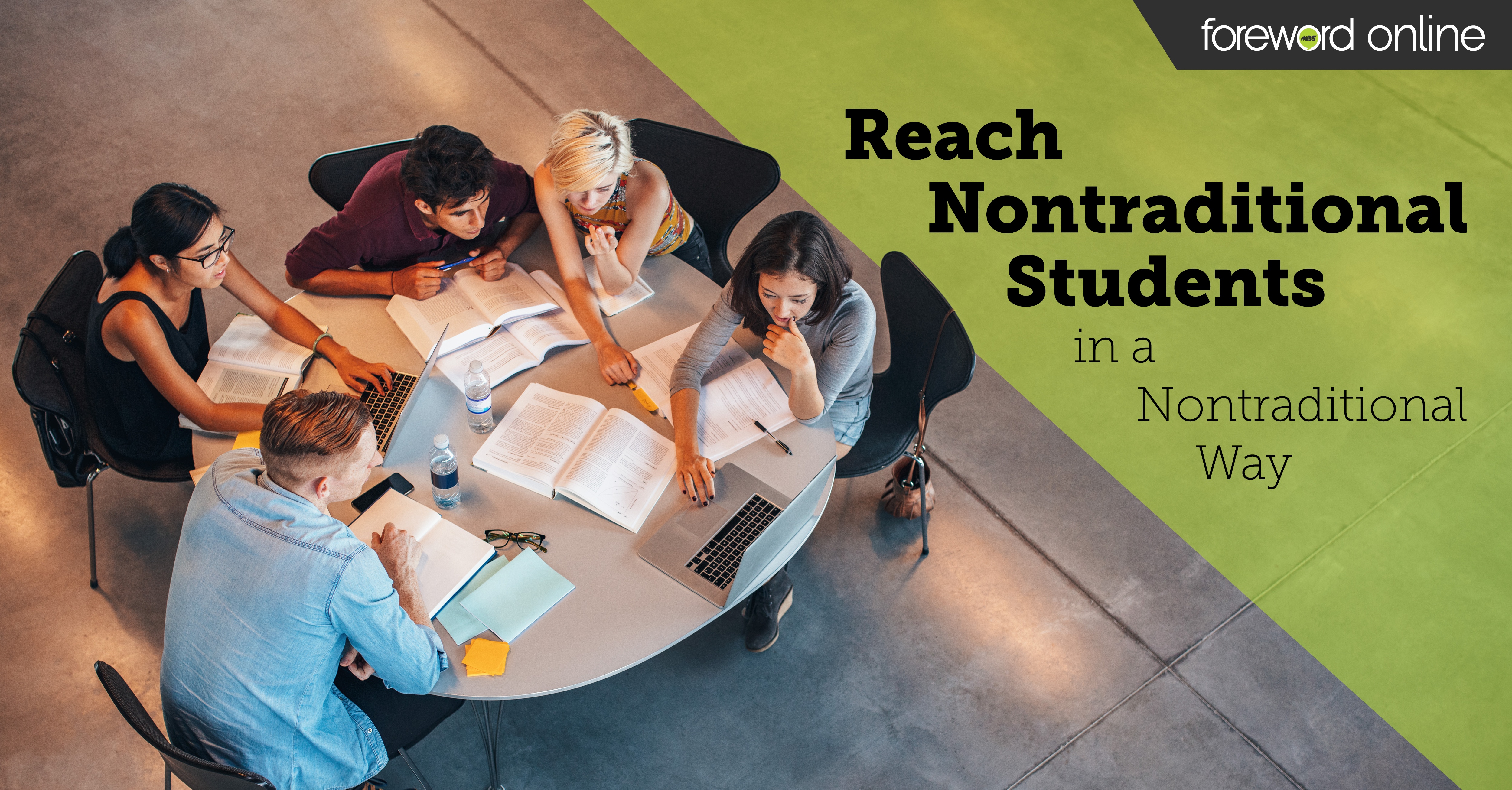The image many of us create in our minds when we think of a college freshman is an 18-year-old student fresh out of high school who is financially dependent on her parents and unmarried with no children. This student attends school full-time, lives on campus and joins organizations to get more involved. However, that isn’t reality for most of today’s students. On many campuses today, the nontraditional student is the new normal.
What is a nontraditional student?
The rise of students who could be classified as nontraditional isn’t new. This population of students has been growing since 1996. In a Guide for Chief Academic Officers & Chief Student Affairs Officers, nontraditional students are defined as being 25 years old or older — meaning that 40% of undergraduates would be considered nontraditional. However, in a report for the National Center for Education Statistics, nontraditional students are defined as having at least one of the following characteristics: independent for financial aid purposes, has one or more dependents, is a single caregiver, does not have a high school diploma, attends school part-time, works full-time or has delayed college enrollment. Using this criterion, 74% of undergraduates in 2011-12 qualified as nontraditional students, while 23.8% of students fit into four or more of these categories.
While what qualifies a student as can vary, it is clear these students make up a sizable portion of the total student population. In fact, there is a predicted growth of 21.7% in the nontraditional student population between 2016-2022. It’s important to understand the concerns and needs of this group of students so your store can better serve your entire campus community.
According to Barnes & Noble College Insights research on nontraditional students:
44% feel connected to their school
29% feel like they belong
57% feel supported by their peers
76% do not feel balanced between school and life obligations
29% are at-risk
90% said cost was the top factor when selecting a college
3 ways your store can connect with nontraditional students
- Communicate the simplest ways for students to shop in your store
Busy nontraditional students may not be the regular faces you see in your store. Rushing from classes to work then back home to take care of their non-school related obligations, these students may never step foot into your store their entire student career. However, that doesn’t mean they wouldn’t buy from you given the right kind of opportunity. These students may see traditional shopping as a luxury. They need solutions that will fit into their schedule. Online shopping coupled with streamlined in-store pick up heightens the appeal of shopping in your store. When these options are available to students, don’t depend on them figuring it out. Send out targeted email messages letting students know this option is available. - Help students reduce stress
All students are stressed. Whether it is about their grades, finances or life in general, they need a break. Many stores host de-stress events to give students that break they crave. Help improve student mental health by providing a temporary distraction like bringing dogs to campus, hosting game nights or offering any sort of fun, stress-free events. Some of the most popular de-stress events for students of all ages are when dogs and cats are brought to campus. - Help maximize textbook savings
The top concern for nontraditional students is affordability. They choose to go to college to make a better life, and the cost of course materials can be a significant barrier in obtaining the resources they need to learn. Nontraditional students may not be aware of all the ways they can save money on course materials or even the options that are available to them in your store. Help by hosting evening or morning events designed to educate students on how they can become savvy textbook shoppers. Perhaps, even provide one-on-one consultations to help maximize their overall savings.
Like Gen Z, nontraditional students are serious and goal-oriented. They are attending college because they see it as a life-changing opportunity. The more your store can help them achieve their goal and provide another form of support, the more they will see the bookstore as their ally.





